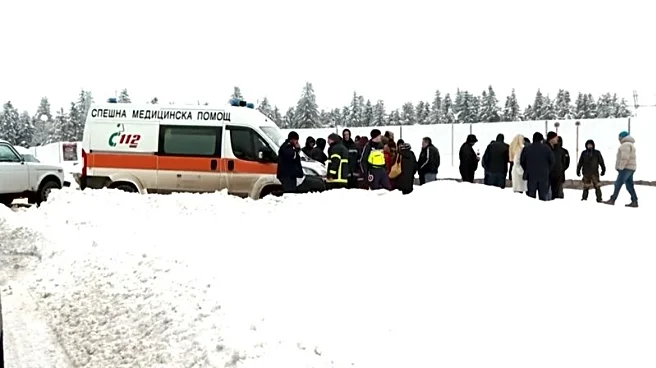What is the story about?
What's Happening?
Substack, a popular newsletter platform, has become a focal point for both sides of the vaccine debate, according to a report by Nature magazine. The platform's lack of content moderation and ease of monetization have attracted writers from across the vaccine spectrum, including those promoting vaccine skepticism and those advocating for vaccination. Substack hosts a variety of publications, such as 'Your Local Epidemiologist' and 'Unbiased Science,' which provide science communication on vaccines and public health. The platform's open nature has led to criticism that it allows the spread of misinformation, potentially endangering public health.
Why It's Important?
The role of platforms like Substack in the vaccine debate is significant as they influence public perception and understanding of vaccines. The spread of misinformation on such platforms can undermine public health efforts and contribute to vaccine hesitancy. This situation highlights the challenges of balancing free speech with the need to protect public health. The controversy also underscores the importance of credible science communication and the responsibility of platforms to manage content that could impact public health negatively.
What's Next?
As the debate over vaccine information continues, platforms like Substack may face increased scrutiny and pressure to implement content moderation policies. Public health officials and policymakers may need to engage with these platforms to ensure accurate information is disseminated. The ongoing discussion may also lead to broader conversations about the role of digital platforms in public health communication and the need for regulatory frameworks to address misinformation.
Beyond the Headlines
The situation with Substack reflects broader societal tensions around trust in science and the role of digital media in shaping public discourse. It raises questions about the responsibilities of content platforms in the digital age and the potential consequences of unmoderated information sharing. The debate also highlights the need for improved public health literacy and critical thinking skills to navigate complex health information.

















